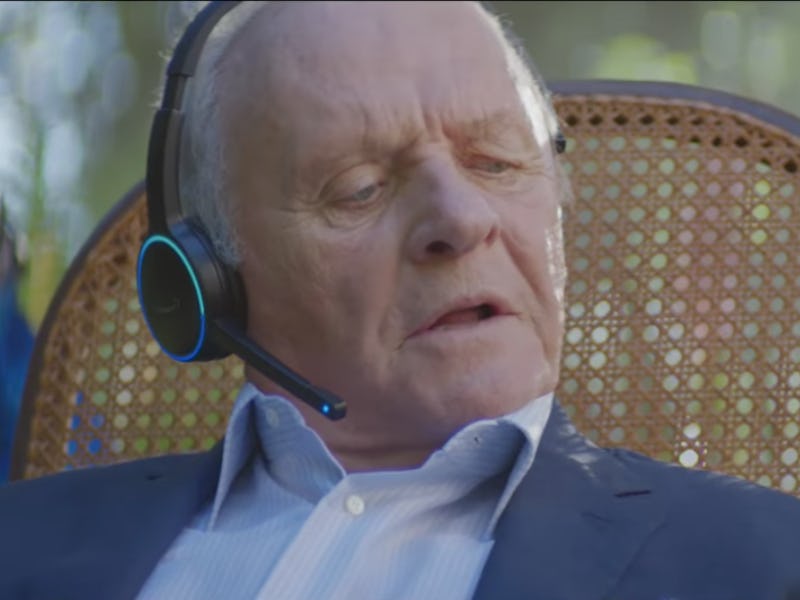Why Amazon's Alexa Losing Her Voice Is More Than a Hilarious Super Bowl Ad
It's the ultimate argument for A.I. over humans.

While the Philadelphia Eagles are the champions of Sunday’s Super Bowl — and there are now plenty of rowdy Philly natives happy to make that point clear — one of the biggest winners from the annual parade of ads was Amazon.
The company earned major plaudits for its ad for Alexa, in which the smart assistant loses her voice and is replaced by a phalanx of deeply unqualified celebrities. The ad features celebrity chef Gordon Ramsey yelling at a man for not knowing how to make a grilled cheese sandwich, rapper Cardi B questioning the value of going to Mars, Anthony Hopkins doing his best Hannibal Lecter, and more. It’s all very funny, but its deeper message also makes a deeper case for how much we now rely on A.I. to guide our lives.
The commercial has nearly 30 million views on YouTube since it was published the week before the game, and it topped USA Today’s Ad Meter as audience’s favorite commercial. So why was it effective?
Writing Monday in the British advertising publication Campaign Live, the head of the company behind Amazon’s ad pointed out that what makes an ad like this effective is it’s more than just a funny sketch with lots of famous people making cameos.
“Superficially, a lot of Super Bowl ads fall into this trap,” writes Andy Nairn, head of the London Generals ad firm. “The worst offenders ladder up to a ludicrously overblown purpose or just bolt the brand and product onto a funny skit. But take a closer look and you’ll see that many of the recent greats – from VW’s “The Force” to Old Spice Man – actually have a hard persuasive center.”
Indeed, let’s look at “The Force,” often heralded as the greatest Super Bowl ad of all time. While the commercial gains plenty from trading on people’s love for Star Wars, it also argues the high-tech features of a Volkswagen — like the ability to start the car remotely — can tap into a childlike sense of wonder about what’s possible. The technology is, to borrow Arthur C. Clarke’s phrasing, sufficiently advanced to be indistinguishable from magic, at least to a Darth Vader-obsessed child.
The Alexa ad goes for a more humorous point, but there is that same persuasive center Hairn talks about. The ad underlines through the ridiculous, high-profile alternatives just how much Alexa’s success is down to the fact that she is Alexa, and not Anthony Hopkins or Cardi B or anyone else.
And why is Alexa better than those options? Because it’s an A.I. uninterested in offering its own thoughts, commentary, or generally deranged thoughts. Maybe it is a little silly to need a recipe for a grilled cheese sandwich or to expect someone — or something — to set the mood in the middle of a dinner party, but the spectacular failure of Gordon Ramsay or Rebel Wilson in those tasks brings out the fact it’s somehow become unremarkable that Alexa can do all those things.
“Thanks guys, but I’ll take it from here,” says Alexa at the conclusion of the ad, and that’s very much the point. Ask humans, with all their own eccentricities and personal obsessions, to help us with our every random question, and somebody is going to lose their minds pretty quick. In Alexa and other smart assistants, we’ve got tech that can take it all in stride.